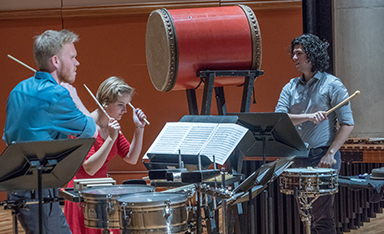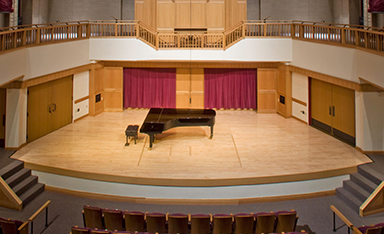The Spirituals Project 2024 Symposium
Saturday, May 18, 2024
We are thrilled to announce our 2024 symposium, with an exciting line-up of guests who will speak on the topic of prayer and how it functions as one of the primary themes of Negro Spirituals.
After Emancipation, there were many who wanted to divest themselves of any vestiges of slavery, which included the singing of spirituals. From the Civil Rights movement through the early 2000s, a large portion of the Black church sought to attract young adults who had left the church by bringing in more contemporary or popular music. This further resulted in the fading out of hymns and spirituals.
Our goal is to engage local Black churches and re-interest them in the singing of spirituals through the vehicle of prayer.
The day will conclude with a performance by The Spirituals Project Choir, presented by CPR Classical.
Keynote Address by Dr. Tammy L. Kernodle
Title: "Down Here Lord, Waiting on You: An Exploration of the Theological and Devotional Legacy of the Negro Spiritual."
Description: This presentation considers the dialectical, performative, and theological aspects of the Negro Spiritual and their relationship to the formation and progression of Black sermonic and prayer traditions in the modern Black Church.
The Spirituals Project is a secular, community-engaged program of the University of Denver’s Lamont School of Music. The Project seeks to preserve and revitalize the artistic, educational, and social justice teachings of “spirituals,” songs that were created and first sung by enslaved Africans in America in the 18th and 19th centuries. We are a community outreach and artistic program centered around a core 55-member multi-ethnic, multigenerational community choir. In addition to a core group of singers from widely diverse segments of the Denver metropolitan community, the choir includes University of Denver students, as well as staff and faculty members.
All events will take place at the Newman Center for the Performing Arts on the University of Denver campus in Denver, Colorado.
Contact: lamont.spirituals@du.edu
For more information about The Spirituals Project: https://liberalarts.du.edu/lamont/spirituals-project
-
Symposium Schedule
All events will take place at the Newman Center for the Performing Arts on the University of Denver campus in Denver, Colorado.
Saturday, May 18, 2024
11:00am - 12:00pm Dr. Tammy L. Kernodle: keynote speaker
Title: "Down Here Lord, Waiting on You: An Exploration of the Theological and Devotional Legacy of the Negro Spiritual."12:00pm - 12:15pm Break
12:15pm - 12:45pm Rev. Dr. Lee Butler: the relationship of spirituals to prayer, and their role in the Black church liturgy
12:45pm - 1:30pm Panel discussion with Lee Butler, Tammy Kernodle, Rollo Dilworth, and local pastors: why this music is still relevant and how pastors can integrate it into their churches
1:30pm - 1:45pm Q&A with audience
1:45pm - 2:00pm Break
2:00pm - 3:00pm Arthur Jones: the 30th anniversary of his book Wade in the Water: The Wisdom of the Spirituals
7:30pm - 9:30pm Performance by The Spirituals Project Choir: Prayer, Protest, and Praise. Purchase tickets in the reserved parterre for $5, or reserve free general admission tickets.
Address:
Newman Center for the Performing Arts
Gates Concert Hall
2344 E Iliff Ave
Denver, CO 80210Schedule subject to change
-
Dr. Tammy L. Kernodle
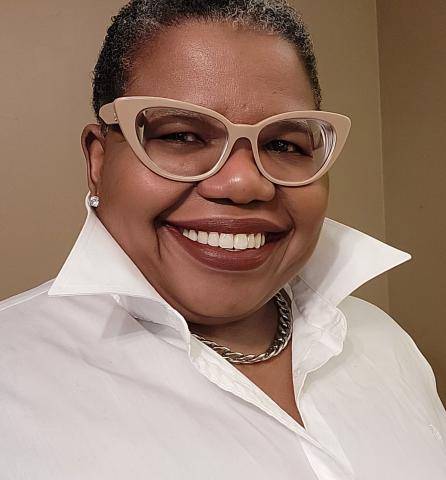
Dr. Tammy L. Kernodle is an internationally recognized musician and scholar that teaches and researches in the areas of African American music (concert and popular music) and gender studies in music. She holds a BM degree in Music Education and Piano from Virginia State University. Her MA and PhD in Musicology (Music History) are from The Ohio State University.
Her scholarship explores the intersection of gender and race, performance practice, and genre in African American music. Her work has appeared in major peer-reviewed journals including American Studies, Musical Quarterly, Black Music Research Journal, The Journal of the Society of American Music (JSAM), American Music Research Journal, The U.S Catholic Historian, and the Journal of the American Musicological Society (JAMS). She also was a contributor to The African American Lectionary Project, the Smithsonian Anthology of Hip Hop and Rap and the Carnegie Hall Digital Timeline of African American Music. Her scholarship also appears in numerous anthologies and reference works including Women’s Voices Across Musical Worlds, John Coltrane and Black America’s Quest for Freedom: Spirituality and the Music, and The Cambridge Companion to Women in Music Since 1900 and Hidden Harmonies: Women and Music in Popular Entertainment.
Kernodle is the author of biography Soul on Soul: The Life and Music of Mary Lou Williams, a comprehensive examination of the pianist/arranger’s six decade career. She served as Associate Editor of the three-volume Encyclopedia of African American Music and as an Editor for the revision of the New Grove Encyclopedia of American Music. She currently serves on the Editorial Board for Grove Music Online, an online music encyclopedia that offers comprehensive coverage of music, musicians, music-making, and music scholarship.
Kernodle served as the Scholar in Residence for the Women in Jazz Initiative at the American Jazz Museum in Kansas City from 1999 until 2001. From 2012-2016, Kernodle served as a scholarly consultant for the exhibits entitled “Musical Crossroads” at the National Museum of African American History and Culture. Over the years she has worked closely with a number of educational programs including the Kennedy Center’s Mary Lou Williams Women in Jazz Festival, Jazz@Lincoln Center, and the National Underground Railroad Museum. She has contributed to programming with NPR, Canadian Public Radio, the Rock ‘n’ Roll Hall of Fame, and the BBC.
She appears in a number of award-winning documentaries including Mary Lou Williams: The Lady Who Swings the Band and Girls in the Band, Miles Davis: Birth of the Cool, and How It Feels to Be Free.
Kernodle is currently serving as scholarly consultant and curator with New World Symphony’s I Dream A World Festival, an annual concert series that seeks to elevate the music and voices of black artisans in the contemporary concert hall.
In 2014, she received the Effective Educator Award from the Miami University Alumni Association and in 2018 was awarded the Benjamin Harrison Medallion. The Harrison Award is the highest award given to a Miami University faculty member in recognition of their research, teaching and service. In 2021 she became the first African American faculty member in the history of Miami University to be promoted to the rank of University Distinguished Professor. She is the Past President of the Society for American Music.
-
Rev. Dr. Lee H. Butler, Jr.
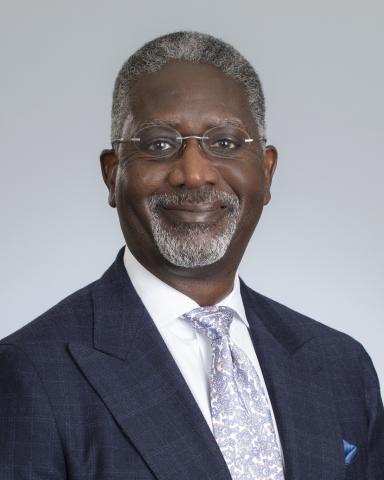
The Rev. Dr. Lee H. Butler, Jr. became the 17th President and CEO of the Iliff School of Theology July 1, 2023. In this new role, he desires to introduce Iliff to new communities and invite fellowship. Butler comes to Iliff from Phillips Theological Seminary, Tulsa, OK, where he served as the Vice-President of Academic Affairs and Academic Dean, and the William Tabbernee Professor of the History of Religions and Africana Pastoral Theology since July 1, 2020. He is the first African American tenured full professor and the first person of color to hold the office of VPAA and Academic Dean and served as Acting President at Phillips. To invite an intercultural community to the work of critical race conversations at Phillips, he inaugurated the Tulsa Race Massacre Lectureship creating a public forum on the dynamic history of the massacre and the lessons to be learned. In November 2022, he organized a Native American Heritage Month event to celebrate the 50th anniversary of the book God Is Red, by the late Vine Deloria, Jr. The evening included a greeting and brief reflection from Dr. Philip Deloria, son of Vine.
Before Phillips, he was the Distinguished Service Professor of Theology and Psychology at Chicago Theological Seminary (CTS). He joined the CTS faculty as assistant professor of theology and psychology in 1996. In 2006, he was promoted to the rank of full professor and became the first African American to achieve this rank at CTS. In 2017, he was installed in his endowed academic chair. He was a former director of the CTS Master of Divinity program, a former Acting Vice-President for Academic Affairs and Academic Dean, and the founder of the Center for the Study of Black Faith and Life at CTS.
Prior to his joining the faculty of Chicago Seminary, Butler was assistant professor of pastoral theology at Lancaster Theological Seminary from 1992-1996. He is a past president of the Society for the Study of Black Religion, a member of the American Academy of Religion, the Society for Pastoral Theology, the Institute for Signifying Scriptures, Society for Process Consulting, the Association of Black Psychologists, and a Board Member of the John Hope Franklin Center for Reconciliation.
He is an active publishing scholar. He is the co-editor of The Edward Wimberly Reader: A Black Pastoral Theology (Baylor University Press, 2020); author of Listen, My Son: Wisdom to Help African American Fathers (Abingdon Press, 2010), Liberating Our Dignity, Saving Our Souls (Chalice Press, 2006), A Loving Home: Caring for African American Marriage and Families (Pilgrim Press, 2000), and numerous articles published in many books and professional journals on the subject of pastoral care and pastoral psychology.
Dr. Butler received his PhD and Master of Philosophy in Psychology and Religion from Drew University. He holds a Master of Theology in Pastoral Theology from Princeton Theological Seminary, a Master of Divinity with a concentration in Pastoral Care and Counseling from Eastern Baptist Theological Seminary (now Palmer Theological Seminary), and a BA in Religion from Bucknell University.
-
Dr. Rollo Dilworth
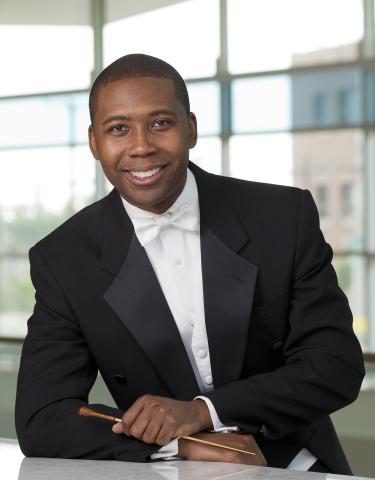
Dr. Rollo Dilworth is currently Vice Dean and Professor of Choral Music Education in the Department of Music Education and Therapy at Temple University’s Center for the Performing and Cinematic Arts in Philadelphia, PA. He has served on the faculty since 2009. In addition to teaching undergraduate and graduate level courses in choral music education, Dilworth serves as Conductor for the Temple University Singing Owls Campus/Community Chorus, as Artistic Director for Singing City, and as Conductor for the School District of Philadelphia High School All-City Chorus.
Over 200 of Dilworth’s choral compositions and arrangements have been published, and many are part of the Henry Leck Creating Artistry Choral Series with the Hal Leonard Corporation. He is an active clinician and frequent guest conductor of all-state, honors, festival, community, church and professional choirs. He has researched, lectured, and presented extensively on various topics including African American choral music, composing/arranging for choirs, social justice, social emotional learning, cultural appropriation, urban music education, community engagement, and diversity, equity, and inclusion.
Dilworth serves on the national boards of Chorus America, the National Collegiate Choral Organization (NCCO), and the Presser Foundation; he is an active life member of the American Choral Directors Association (ACDA). He also holds memberships with several other organizations, including the National Association for Music Education (NAfME), the National Association of Negro Musicians (NANM) and the American Society of Composers, Authors, and Publishers (ASCAP).
-
Dr. Arthur Jones
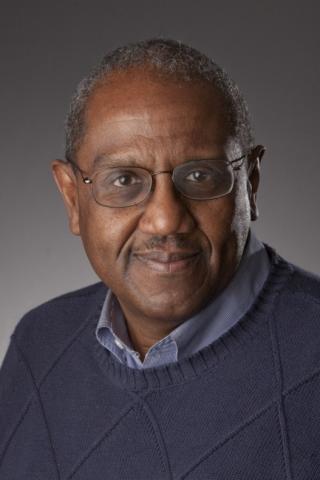
Dr. Arthur Jones is a clinical psychologist, interdisciplinary scholar and avocational singer who received a Ph.D. in clinical psychology from the University of Iowa (Iowa City) in 1974. He has served as Interim Vice Chancellor for Diversity, Equity and Inclusion at the University of Denver (DU), and Professor Emeritus of Music, Culture and Psychology in DU’s College of Arts, Humanities, and Social Sciences. From 2016 to 2019, he was Teaching Professor of Music, Culture and Psychology at the DU Lamont School of Music. Before that, he served as a clinical professor and associate dean at DU’s Colorado Women’s College (2009-2016), and as a clinical professor in the Department of Psychology (1991-2009). He is also a past president of the DU Faculty Senate (2014-2016).
Dr. Jones is the Founder of the award-winning Spirituals Project, which has worked since 1998 to preserve and revitalize the music and teachings of the sacred folk songs called “spirituals,” created and first sung by enslaved African Americans. The multifaceted The Spirituals Project has operated in several domains, including research, educational programming, and musical performance, anchored by its multi-ethnic, inter-generational Spirituals Project Choir.
In the Fall of 2016, The Spirituals Project became an official program of the University of Denver Lamont School of Music, under the direction of M. Roger Holland II – a nationally renowned conductor, composer, pianist, and singer – who was recruited to serve as the Spirituals Project’s first faculty director. In his role as Professor Emeritus, Dr. Jones continues to serve as an informal advisor to Professor Holland and The Spirituals Project, and he participates actively with The Spirituals Project Choir as a chorister, soloist and communal song leader.
Combining his expertise and experience as a psychologist, scholar and accomplished singer (with fourteen years of private voice study and experience as a recitalist and as an Opera Colorado chorister and soloist), Dr. Jones has presented concerts, lectures, and workshops on spirituals throughout the United States. He is the author of numerous professional publications, including the award-winning book, Wade in the Water: The Wisdom of the Spirituals, now in its third edition, and he has been the recipient of a variety of local, regional and national awards for his teaching, community service and scholarship, including – most recently – the Menola Upshaw Humanitarian Lifetime Achievement Award, from the Dr. Martin Luther King, Jr. Colorado Holiday Commission; the Martin Luther King, Jr. Peace Award, from Metropolitan State University of Denver; and the “African Americans Who Make a Difference” Award, from the Denver Urban Spectrum.
Prior to coming to the University of Denver in 1991, Dr. Jones held full-time faculty positions at the University of Illinois at Springfield, Bowling Green State University, and the University of Colorado Health Sciences Center. He also maintained an independent psychology practice in Denver for many years. He is a past chair of the Colorado Board of Psychologist Examiners, which awards licenses to professional psychologists and monitors professional conduct among psychologists state-wide. During his tenure as Chair of the Board in the 1980s, he led the charge to ensure that the demonstration of multi-cultural competence was required of every psychologist applying for licensure in Colorado.


